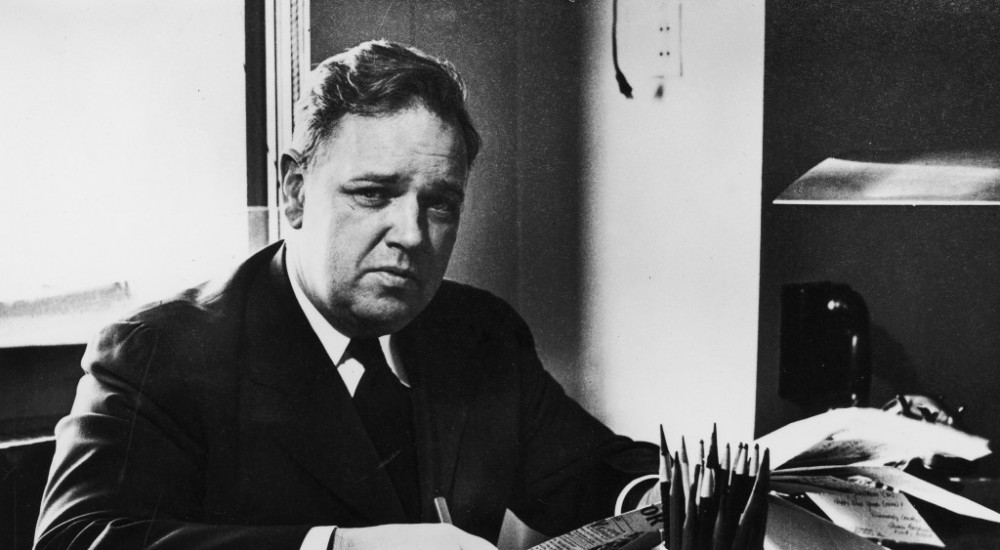First Things: The Empire of Desire
One really can’t say enough good things about Andrew Schwartz’s excellent post regarding the existentialist mindset. R.R. Reno over at First Things echoes those comments this morning:
Yet, underneath all this we find an antinomian sensibility. We are trained to be suspicious of longstanding moral traditions; we are told to adopt a critical attitude toward inherited norms. That’s not just an academic habit of mind. It serves a moral conviction, widespread though often tacit: that human beings flourish to the degree that they’re free to satisfy their personal desires. The same conviction underwrites our therapeutic vocabulary of empowerment, the pedagogy of multiculturalism, and our paradoxical moral code of nonjudgmentalism. What makes for happiness and fulfillment—and here we enter into the metaphysical dream that defines our era—is an Empire of Desire. We affirm countless little disciplines to ensure health, productivity, success, and social harmony. But we push these social mores, disciplines, and restraints to the margins of our souls, creating space for bespoke lives tailored to our desires. In the Empire of Desire, Charlie can become Charlene without guilt, shame, or social stigma.
The following might have a lot of 10-cent words, but the lines echo the very problem modern Christianity faces today:
The Italian philosopher Gianni Vattimo provides a particularly clear and forthright example. “Philosophy, today,” he writes in After Christianity (2002), “conceives of Being as event and as destiny of weakening.” The modern collapse of Christianity as the source of law for the self and society seems like a failure, but it is in fact the realization of Christianity’s true spiritual genius. We are heading, he prophesies, “toward emancipation by diminishing strong structures (in thought, individual consciousness, political power, social relations, and religion).” Indirectly (and unknowingly) evoking the rich tradition of liberal Protestant theology, Vattimo suggests that this antinomian trajectory is “a transcription of the Christian message of the incarnation of God, which St. Paul also calls kenosis—that is, the abasement, humiliation, and weakening of God.” Here we find a wonderfully pure expression of the metaphysical dream of our era: God himself is an antinomian. Christ does not fulfill the law of Moses; instead, he undercuts Moses and evacuates the law of all normative power. Sinai becomes the Antichrist. (emphasis added)
Short version: we have traded being (ontos) for meaning. Instead of liberty, we have demanded license, and upon being held back by reality have imposed tyranny.
This tension is worth exploring a bit, because as we grasp for the “I want” we often find that such desires turn into the demand of “you will” — the degradation of liberty into the excesses of license then tyranny.
Reno offers some hope in the mix of things, echoing Chesterton’s observation that the life of virtue today has all the exhilaration of vice:
To serve this dream we’ve empowered the dictatorship of relativism, which is closely allied with the harrying mentality of political correctness. Every empire needs rules and regulation, which we certainly have. There are some minimal but bright-line limits. Homosexuality is just fine, but adults having sex with adolescents is absolutely prohibited and severely punished—a historical anomaly. Few think marijuana taboo, but smoking tobacco is severely limited and widely shamed. Recycling has become a sign of the latter-day virtue of environmentalism. There are also many hopelessly vague rules. What, exactly, turns casual sex into date rape? Lack of consent, of course, but when is the drunken “yes” really a “no”? And we have today’s “moral” dilemmas. What are we to think about huge corporations that market organic food made by local producers?
Older moral traditions also endure in diminished forms, offering resistance to the Empire of Desire. Nobody thinks twice about cohabitation before marriage, but when couples get serious they expect monogamy and still resent betrayal. Few admire cheats and liars. While we may fail in our own lives, we honor the sacrifices parents make for their children. People still salute the flag. The Empire’s dominion isn’t complete; sometimes we feel the spurs of guilt when we transgress, and sometimes we thrill to moral ideals.
The dichotomy of the modern existentialist turned nihilist still has to own up to its absurdities. Such is the nature of the existentialist threat facing Western culture, and more specifically American culture.
What is to be done? Two generations have been educated in mush; what passed for education amongst our grandparents is almost lost to the Western canon (if at least preserved in the Great Books series and other collections). It would take a Herculean effort among families and churches to resurrect the West, one that focuses on what a good education ought to be, what we have lost, and then organizing ourselves to the great task of becoming the men and women we should have been and ought to be.
Whittaker Chambers talked about the difference between the political left and the political right in his book Cold Friday. More to the point, why the left keeps rolling us:
The question is: What is the West’s answer to Communism? It is pretty clear, I think, that the more or less anonymous thousands who yearly flee Communism . . . are fleeing a misery, rather than embracing an alternative idea…. The lack of such an answer defeats our propaganda at the core — and the word “propaganda” used in this sense, is itself suggestive. By an answer I mean a rallying idea, capable of being grasped by, and so overmastering, millions of men of the most diverse kinds because its single force persuades that it brings “together with a remedy for their ills, the solution to the problem of their destiny.” In the West, taken as a whole, this idea does not exist. We know this whenever the problem arises, as it does daily, to the people of Asia and Africa, for example — a sense-making notion of what the West stands for, so that they quickly grasp it, and it stirs them to a willingness to die for it, rather than live for any other. Does such an idea exist? Let us not deceive ourselves, but answer truthfully: “It does not exist.” “But what about Freedom?” you say. You are saying it to millions who never have been free in your sense, and grasp chiefly that they are free to starve. They will reach quicker for an idea that promises them an end to hunger, even if they suspect that the promise is overblown (for even the most primitive starvelings are, in general, not fools; they are merely not sophisticated in your terms; but they catch on quickly).
So long as such a central rallying idea does not exist, we in the West are likely to go on defending frontiers, even if we are no longer losing provinces. And that regardless of how elaborately the frontiers are manned and weaponed. Maginot Lines are butts to ideas.
These are the paragraphs that need to be thrown into the faces of Tea Party libertarians and their populist allies, ones that conservatives long in the trenches know instinctively through long years of political combat. Randian objectivism is not the grand idea, nor has it ever liberated a single soul, unless to line the pockets of a marketer or political consultant benefiting on the chaos of providing a rearguard harassment in thrall to a political left more than happy to give them oxygen.
One does have to wonder, though. Had Chambers lived long enough to see the Solidarity movement, the Velvet Revolution of 1989 and the fall of the Berlin Wall, would Chambers have dismissed the idea that the West has a countering idea?
For Eastern Europe, that galvanizing idea was personified in Pope John Paul II’s Christian personalism, grounded in the solidarist economics of Fr. Heinrich Pesch S.J. in his seminal book Ethics and the National Economy — a welding of Austrian economics and Thomistic philosophy. For the Catholic Church, the backbone of the Solidarity movement was the family — the very core of the free peoples of Europe’s ability to resist Soviet Communism.
Politics follows culture, as John Paul II knew all too well and the late Paul Weyrich was so fond of quoting. It could take a generation, but it is worth our focus.



